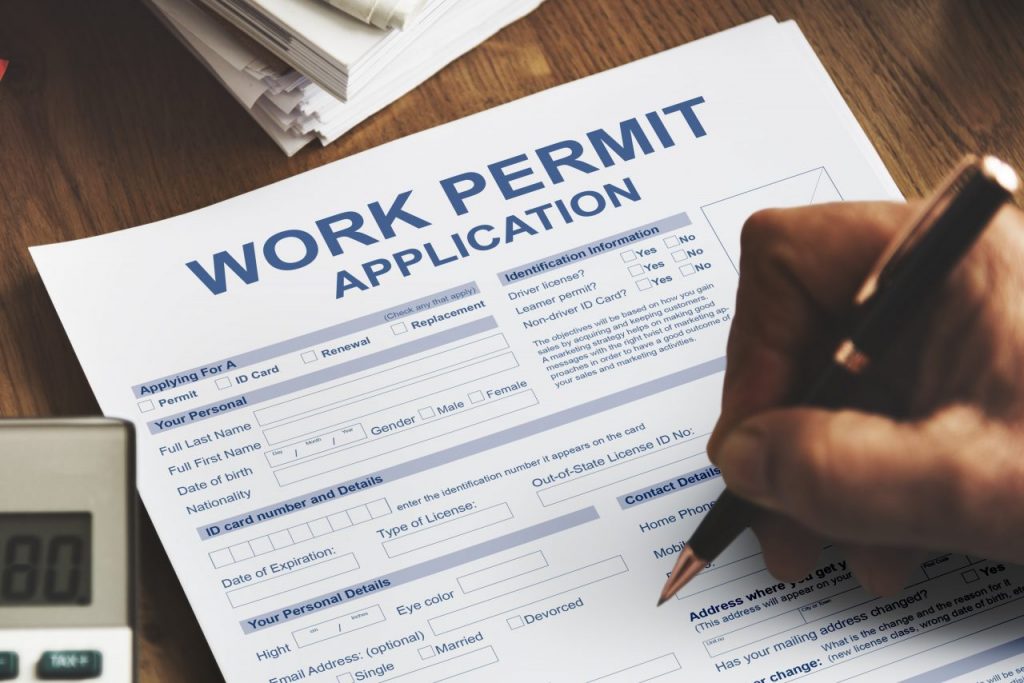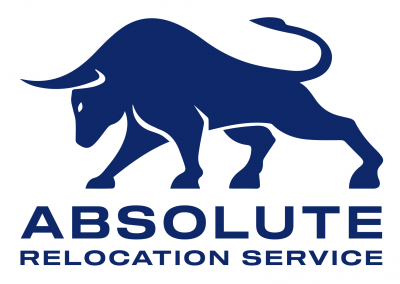Employment in Hawaii: Jobs, requirements, career opportunities
Hawaii, with its unique culture, beautiful beaches and diverse ecosystem, attracts not only tourists, but also those seeking employment and career opportunities. Hawaii’s job market is a mosaic of opportunities that reflects the islands’ wealth of economic sectors. With tourism, agriculture, information technology, health care, and education among the key sectors, Hawaii offers a wide range of jobs and career opportunities.
Our article will examine the state of the labour market in Hawaii, outline the major industries and their characteristics, and provide tips for employment and career development in these amazing islands. Let’s dive into the world of job and career opportunities in Hawaii.
Types of jobs in Hawaii
Hawaii has a variety of labor sectors that reflect the richness and specificity of the island lifestyle. This unique mix of economic sectors provides a variety of employment opportunities for locals and visitors alike.
Tourism and Hospitality sectors

The tourism and hospitality industries, which are key to the islands, have a demand for a variety of professionals ranging from guides and service workers to managers and receptionists.
The tourism industry and hospitality industry in Hawaii is particularly popular in areas such as Oahu, Maui, Big Island, and Kauai. These islands attract crowds of tourists from all over the world because of their stunning beaches, picturesque scenery and unique culture.
Work schedules in the travel industry usually depend on the type of work. For example, tour guides may have erratic schedules depending on tourist excursions and weather conditions. Workers in the service industry and hotel administration may work mostly shift work, ensuring that hotel services continue to operate 24/7.
Earnings in the travel industry can vary depending on job level and experience. For example, tour guides and service workers can earn between $25,000 and $50,000 per year, including additional tips. Managers and receptionists in the hospitality industry earn an average of $40,000 to $80,000 per year, depending on the size and prestige of the hotel.
It’s worth noting that earnings can vary greatly depending on a number of factors, such as work experience, education level, region of operation, and even the type of company. It is also important to keep in mind that wages in this industry can be supplemented by tips, which can greatly affect an employee’s overall income.
There are both challenges and opportunities in the travel business. Challenges can include the seasonality of tourist demand, the need to provide a high level of service, and adapting to the different cultural and linguistic needs of tourists. However, the sector also offers opportunities for career advancement, learning new skills and interacting with diverse cultures. For example, a tour guide can become an expert in his or her field and move into higher-paid positions, while a hotel manager can gain international experience by managing hotel operations on different islands.
The education sector

The education field in Hawaii offers a wide range of job opportunities in a variety of educational settings, from kindergartens and schools to universities. In particular, teachers and educators are often in demand in this region, especially in schools that emphasize the cultural and historical aspects of the island lifestyle alongside core curricula.
Work schedules in the educational field usually follow the school calendar with the possibility of additional activities during vacations. Salaries for teachers range from $40,000 to $70,000 per year, depending on degree and experience as well as region and type of institution. Administrative staff, including school principals and superintendents, can earn between $60,000 and $100,000 per year.
One of the challenges of working in the education field in Hawaii can be the lack of funding for educational institutions and limited resources for training. However, it also provides an opportunity to be creative and find innovative approaches to teaching. Professionals in this field can actively utilize the islands’ local resources, nature, and cultural heritage in their work, making it unique and exciting.
Healthcare and Agriculture sectors

Agriculture in Hawaii, particularly on the island of Hawaii (also known as the “Big Island”), has a high demand for labor in the agricultural sector, including growing coffee, pineapples, macadamias, and other tropical fruits. Working on farms can be physically demanding, especially during harvest season, but it also offers the opportunity to work outdoors and enjoy the beautiful scenery of the islands.
Farm labor schedules often depend on the time of year and harvest season. Salaries for farm laborers range from $10 to $15 per hour depending on experience and type of work. More skilled professionals, such as agronomists or veterinarians, can earn between $50,000 and $100,000 per year, depending on skill level and experience.
The health care field in Hawaii also offers many career opportunities. The islands have an extensive medical infrastructure, including hospitals, clinics, and medical centers. In-demand specialties include nurses, physicians, community health specialists, and administrative staff. Work schedules in healthcare can be varied depending on specialty and location, but usually provides flexible options for shifts and part-time schedules.
Salaries in healthcare in Hawaii vary depending on the position and qualifications. Nurses can earn between $60,000 and $100,000 per year, depending on experience level and specialization, while physicians typically earn between $150,000 and $300,000 per year.
Marine and Fishery sector

Fishing and related fish processing and transportation play a significant role in Hawaii’s economy. The islands are located in the heart of the Pacific Ocean, which creates a favorable environment for fishing and marine resources.
Commercial fishing, including catching fish for sale in local and international markets, is a particularly popular sector. Jobs are available both on fishing vessels and on land, in fish processing and packaging areas. Work schedules in this industry often depend on sea conditions and fishing seasons. Employees on fishing vessels often work in shifts or for long periods of time, while employees at processing locations may have standardized work schedules.
Wages in fishing and fish processing in Hawaii depend on position, experience, and company. On fishing vessels, salaries can be around $30,000 to $50,000 per year for sailors and fishermen’s mates, while vessel captains can earn anywhere from $50,000 to $100,000 or more depending on experience and catch success. At fish processing locations, such as fish processing plants, wages can be around $25,000 to $40,000 per year for workers on the processing line.
While fishing and fish processing provide employment opportunities in Hawaii, there are also challenges associated with working in this industry, including harsh physical conditions, marine hazards, and seasonal fluctuations in demand for fish. Nevertheless, careers in fishing offer opportunities to work in the outdoors and marine environment, as well as participate in the conservation of marine resources and the local economy.
Building and Construction sector

Construction and related service and maintenance industries are key sectors of Hawaii’s economy. The development of tourism infrastructure, residential developments, and commercial facilities creates a constant demand for construction services and maintenance.
Construction of hotel complexes, resorts, and residential developments on the islands is a particularly popular sector. This creates many job openings for construction workers, electricians, plumbers and other construction and maintenance professionals. Work schedules in this industry can vary depending on the type of project and company. Jobs can range from full-time to temporary employment for specific projects.
Construction and maintenance salaries in Hawaii are also diverse. Construction workers and technicians can earn anywhere from $40,000 to $80,000 per year, depending on experience, qualifications, and type of project. Some specialized professions, such as engineers and architects, can earn even higher salaries.
Among the challenges of working in construction and maintenance can be the physical challenges of working on construction sites or at heights, as well as the need to adhere to strict safety standards. However, these occupations also provide opportunities for professional growth and development, especially in the context of Hawaii’s rapidly expanding infrastructure.
Labor requirements and licensing

Obtaining licenses and certificates for certain professions in Hawaii has its own specifics and requirements that vary depending on the particular field of work. Occupations are regulated by the appropriate state and professional bodies that set qualification and safety standards for work in various industries.
One of the key industries where licensure is required is medicine and healthcare. To work as a doctor, nurse, dentist, or other medical professional in Hawaii, you must have the appropriate medical license. Obtaining a license usually requires completion of a specialized educational course and exam, as well as practical experience requirements.
Some professions, such as teachers, require a license from the state of Hawaii. This also involves taking a specialized educational course and exam, as well as completing education and experience requirements.
Construction and technical trades also have certain licensing requirements. For example, working as an electrician or plumber requires a special license, which is issued after completing training and passing safety and technical skills exams.
Employment requirements for non-residents
There are different types of visas available for non-residents to work in Hawaii, depending on their goals and qualifications. One of the most popular types of work visas is the H-1B visa, which is for professionals with advanced degrees and specialized skills. The H-1B visa requires a job offer from a U.S. employer to sponsor a non-resident visa. This visa allows you to work in Hawaii and other U.S. states for a specified period of time, usually up to three years, with the option to extend up to six years.
Another option for non-residents is the L-1 visa, which is designed to temporarily transfer employees between company offices in different countries. This visa allows you to work in Hawaii if the company has a branch or office in the islands and the employee was temporarily transferred to work there from another country.
There is also an E-2 investor work visa option, which allows entrepreneurs and businessmen from certain countries to invest in and manage businesses in Hawaii.
Non-residents may also be able to obtain O or P work visas to work in the arts, sports, or entertainment if they have outstanding ability or achievement in their field of endeavor.
It is important to note that the requirements and procedures for obtaining work visas may vary depending on the specific type of visa and the personal circumstances of the applicant. It is therefore advisable to contact an immigration lawyer or competent legal professionals for advice and guidance before beginning the process of obtaining a work visa.
Career Opportunities and Prospects

Hawaii has a number of programmatic and educational initiatives to support and promote career opportunities for local residents and non-residents.
One such initiative is the Hawaii Career Pathways program suite, which is designed to provide island students and alumni with information about available career pathways and opportunities. The program includes career counseling and resources, as well as assistance in obtaining needed education and training.
The organization’s website is https://hawaiicareerpathways.org
Another example is Hawaii Jobs On Demand, a program run by the Hawaii government that provides information about in-demand jobs and helps job seekers prepare for these jobs through training and qualification courses.
The organization’s website is https://hawaiijobsondemand.com
Local universities and colleges, such as the University of Hawaii at Manoa and Hawaii College, also play a significant role in career development. They offer a wide range of educational programs and courses, including technical majors, business administration, health care, and more. Most also have exchange and internship programs, giving students the opportunity to gain hands-on experience in their industry.
In addition, Hawaii is actively attracting investment and development in new industries such as innovative technologies, renewable energy, and sustainable initiatives. This creates additional opportunities for career growth and development in these sectors.
Overall, through a wide range of programs and initiatives, as well as a variety of professional education programs and opportunities, Hawaii provides career development prospects in a variety of industries and occupations.
Employment tips

Like anywhere else, finding a job can present certain challenges. Let’s take a look at a few Hawaii employment tips that will help you successfully find a job and get you on the path to professional growth.
- Online Job Search Platforms: When searching for jobs in Hawaii, start by visiting local job search sites such as HawaiiJobsOnline.com and Hawaii State Government Jobs. These platforms offer a wide variety of job openings in industries ranging from tourism to healthcare.
- Local Labor Exchanges: Contact your local Department of Labor and Industrial Relations (DLIR) offices for information on current job openings, job training programs, and employment services. Specialists can help you navigate the job market and find the right job for you.
- Continuing Education: Think about opportunities for professional development and skill changes. Check with local educational institutions, such as the University of Hawaii or Hawaii Community College, to find out about continuing education courses and training programs that will help you gain the skills you need for the job you want.
- Interviews in Hawaii: Prepare for an informal approach during interviews. You may be asked not only about your job skills, but also about your relationship to the local culture and customs. Be friendly and open with your potential employer and show respect for local culture and traditions.
These guidelines will help you be more successful in your Hawaii job search and interactions with local employers.
Conclusion
It is important to remember that successful employment in Hawaii depends not only on your professional skills, but also on your willingness to adapt to local customs and peculiarities. Mutual respect for the culture and traditions of the islands plays an important role in creating a rewarding work environment and relationship with coworkers and employers.
However, with a variety of job search resources, educational programs, and employment support programs, everyone can find their place in Hawaii. The key is to be ready for new opportunities, seek professional growth, and openly engage with the community.
If you are planning an employment and relocation to Hawaii, Absolute Relocation Service will take care of all the hassle of the move, including packing, transportation, unpacking and storage, as well as assistance with documentation, including international moves, so you can focus on your tasks and have peace of mind that your belongings are safe.
Contact us in any way:
Telephone: (954) 773-9667
E-mail: abs@absoluteinc.org





